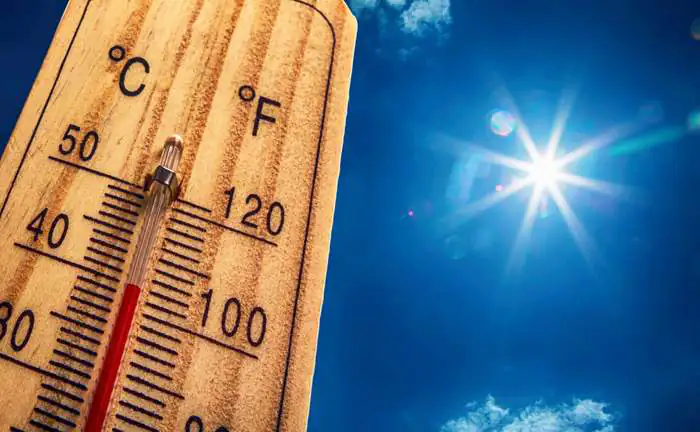The air temperature exceeding +30 is dangerous for a person. At this point, the body’s “self-cooling” processes begin to work to exhaustion. High ambient temperature causes profuse sweating, exceeding the norm by 4-5 times. Such indicators are characteristic if a person performs heavy physical work.
In summer, many people notice for themselves and an increased sense of anxiety. And while some psychologists attribute this to the fear of missing the summer and not having time to enjoy activities, others argue that the fault of increased anxiety is the urban heat.

As the air temperature increases, a person may feel a sudden drop in energy. At this time, the body may give the same signals that are felt during a panic attack. Some of the most common symptoms include excessive sweating, dizziness, mild nausea, and palpitations.
The main summer danger is sunstroke and heat stroke. In order for the body to overheat, it is enough to stay in the sun for only 20 minutes. The consequences of such “overheating” can be very unpredictable.
Water and salt balance in the body
In the heat of the day, the water and salt balance in the body is disturbed due to profuse sweating, resulting in poor nutrition of muscle cells and poor performance of the organism. Drinking just water on hot days is not enough, it is better to drink mineral water containing potassium, calcium and magnesium. After all, the danger of high temperatures is not only dehydration of the organism, but also loss of salts. These salts are necessary for the body and should be replenished.
You should also give preference to water-containing vegetables, fruits and berries. For example, tomatoes, watermelon and cucumbers. Drink the bulk of water in the evening and morning. There is a hypothesis that at this time the body has the opportunity to store moisture in the tissues.
Vein tone reduction
Heat leads to a decrease in vein tone, and blood flow in the skin tissues increases significantly, resulting in a lack of blood flow to the organs. Kidneys, liver, intestines and muscles do not receive enough oxygen and their functioning deteriorates.
During extreme heat people suffering from bronchitis, asthma, pneumonia face lack of oxygen. Acute shortage of air leads to a violation of full breathing, the need for urgent treatment, the use of asthmopants.
Risk of new diseases
In addition to the aggravation of existing diseases, people often develop new ones. Angina, bronchitis and inflammation of the lungs occur in summer as often as in winter. Even a couple of sips of cool water can cause inflammation of tonsils, development of pharyngitis or laryngitis. Another danger is air conditioners. A stream of cold air can lead to pneumonia and bronchitis.
Prepared by Mary Clair

